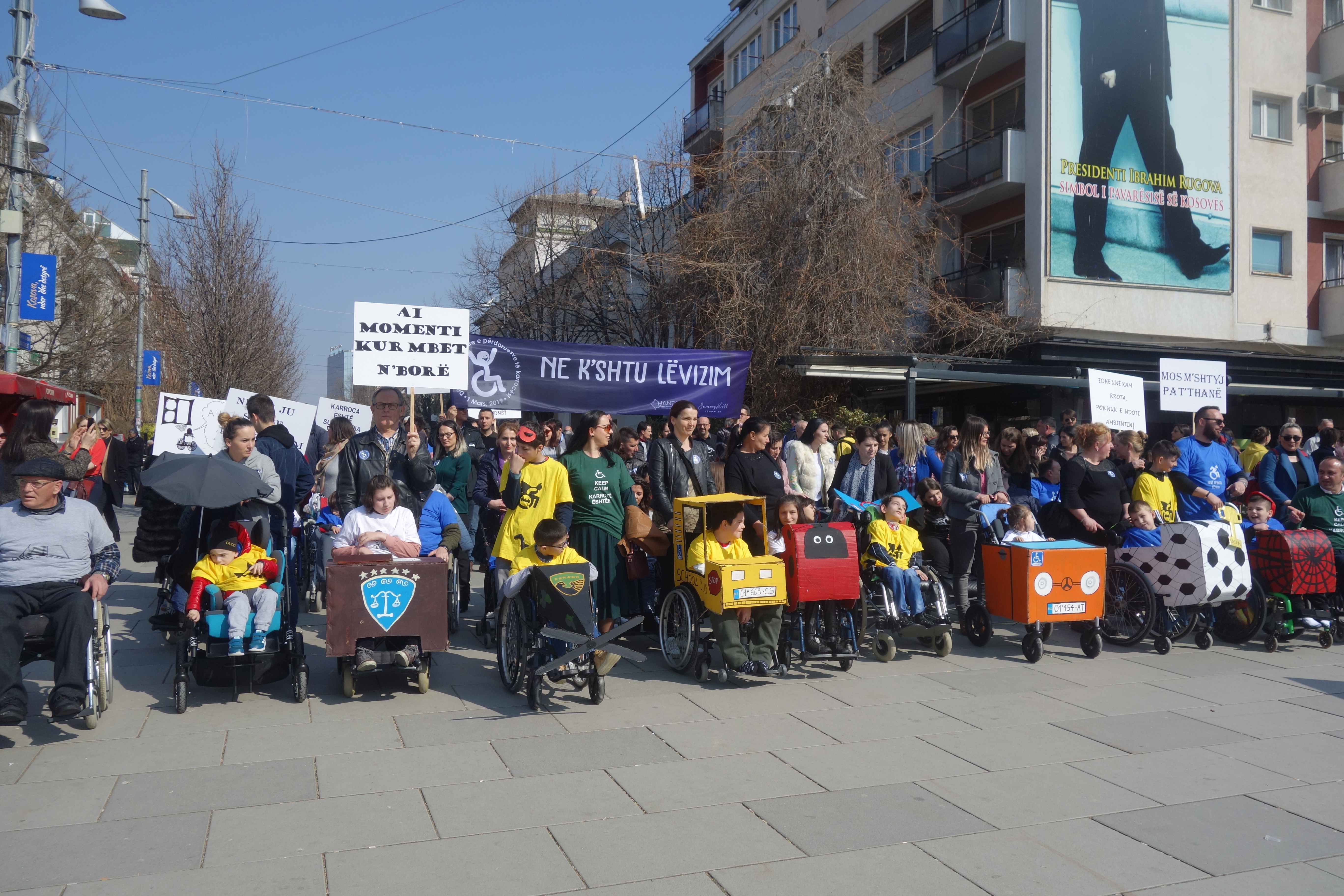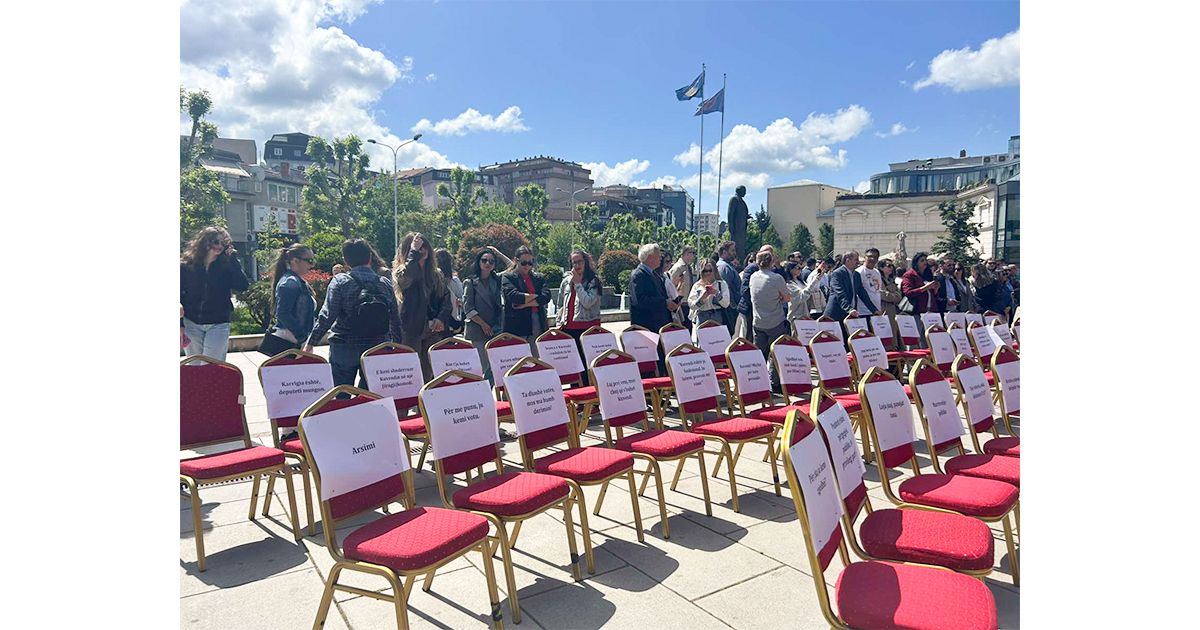March 1st marks The International Wheelchair Day. Dancing, marching and playing basketball were among the ways to celebrate this day in Kosovo.
The ceremony event was organized by Handikos, a members of Kosova Women’s Network (KWN), under the motto “This is how we move” (Ne kështu lëvizim) and it gathered many people in wheelchairs, and others supporting their equal rights too.
Drita Kluna, a member of Handikos Drenas, shared her happiness for participating in this march, while spreading a message for everyone. “We do not need remorse. All of us are missing something, but this does not imply that we cannot live by ourselves, this does not mean that we cannot have access. We are all equal”, Kluna stated.
Sulltane Qafleshi, a member of Handikos Prizren considers that nowadays people are more aware of the conditions of people in wheelchairs.
“I can only talk for Prizren, I am pleased with a number of activities taking place for us there. As from where I stand, we [women] are equal to men”, said Qafleshi.
In the meantime, not far from the place where she was giving this statement, a basketball field was being prepared only for men with wheelchairs to play.
Durim Gashi, representative of Handikos , has an explanation why there is not a single girl or woman playing basketball.
“In basketball tournaments there are more girls involved, but in this particular case it was more difficult. We have only two girls who play basketball. One of them is not in Kosovo, and the other one couldn’t join us today”, said Gashi, while adding that the game carries a symbolic meaning that people with wheelchairs can move too.
This event was held in order to appreciate the positive impact of using the supporting equipment for people in wheelchairs.
In several recent years women with disabilities have been supported through KWN’s work and activities, as member organizations.
Notably, a newly action launched by KWN in 2019 seeks to Strengthen Women’s Participation in Politics, aspiring to engage more women with disabilities in decision-making processes.




